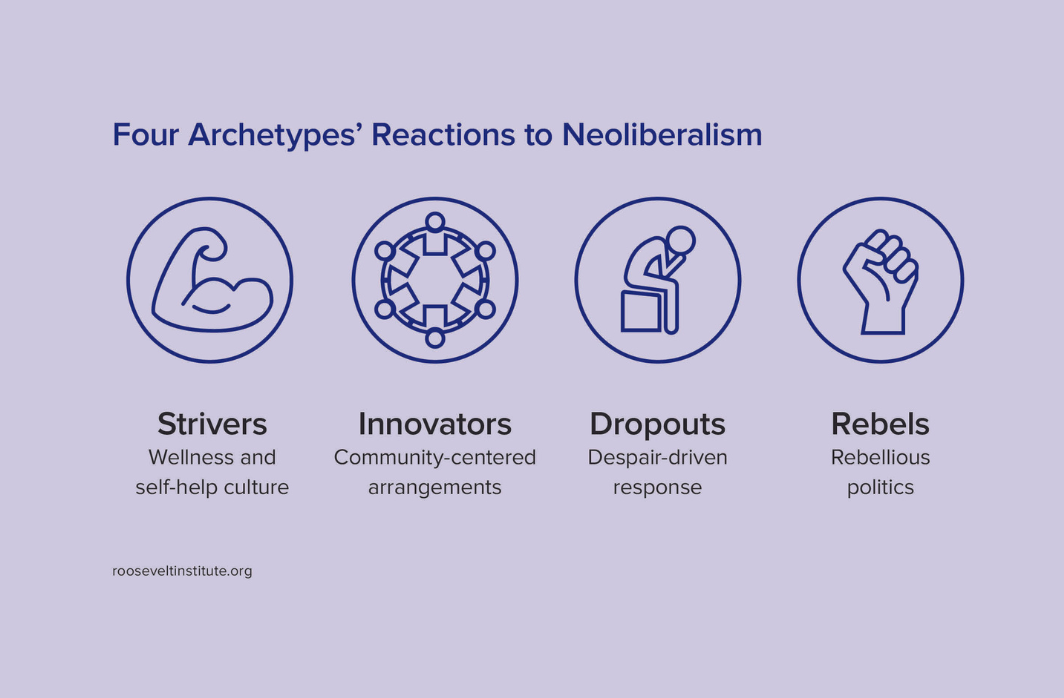This is report discusses the cultural environment in which men’s liberation occurs. It points out that the right has successfully weaponized neoliberal discontent to further it’s anti-democratic goals. Under the heading “Self-Help Toxic Masculinists and Conspiritualists Weaponize WASH”:
Self-help, already intimately intertwined with the hustle mindset, is today being infused with deeply misogynistic propaganda by far-right popular culture figures like Jordan Peterson, Joe Rogan, and Andrew Tate. […] Through podcasts, webinars, interviews, lectures, and books, these men and others like them are using their enormous platforms to offer solutions to the so-called “crisis of masculinity”—a conservative talking point that warps the complex and legitimate social and economic issues facing men, particularly working-class men, into a rallying cry against progress and equality—in an effort to reassert male dominance, heteronormative gender roles, and traditional patriarchal family structures. To do this in a way that reaches wide swaths of people and allows for a shred of plausible deniability, they use the seemingly innocuous language of self-help and self-improvement.
Self-help and self-improvement reinforce the “neoliberal self”, “an entrepreneurial subject” where “personal grown and fulfillment are said to be attained through competition with others.” But, as the report repeatedly emphasizes, neoliberalism as a cultural order generates and regenerates deep, deep dissatisfaction with it.
Reading what I’ve read so far, I thought to myself, “What does men’s liberation mean, exactly?” (I’m not sure why this community popped into my mind…but it did). Because, without this neoliberal angle, men’s liberation risks thrusting men back into a misanthropic culture as feminists. Sure, that’s better than being a right-wing, patriarchal zealot, but it’s not truly liberating.
While I would obviously recommend the report itself, given that it’s 50 pages, I understand that’s incredibly unlikely. Maybe throw it in Claude and ask it some questions.
In any case, what do you think?



I think these are some good points particularly as they reflect on the idea of ‘redefining’ Masculinity. While i would argue our current conception of Masculinity is much more deeply rooted (certainly much much older) than neoliberalism, Masculinity is similarly dependent on the idea of competition as the primary means of expression. This is why i believe it is somewhat missing the point to try to define a positive Masculinity. If you’ve got a group of people who’ve existed since birth in an intrinsically competitive environment, it is not enough to say the new ideal is not competitive. When the cultural notions of the group are already set in place, a supposedly less competitive ideal will result in almost no actual social change. Deconstructing the competitive instincts of Masculinity should be the primary project.